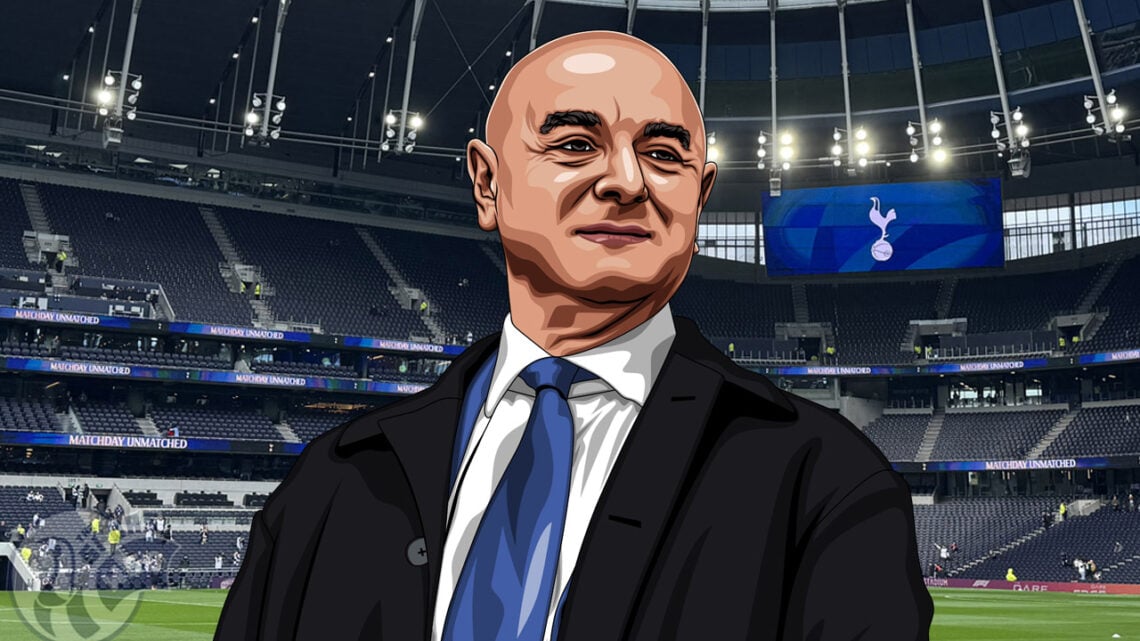With a 12% reduction in their wage bill, Tottenham are spending far less than their rivals. Let’s find out how Daniel Levy’s Spurs wage structure undervalues key players compared to their rivals.
Tottenham Hotspur’s 2023/24 financial report has been released, and for a club without Champions League football, Daniel Levy has done an exceptional job in keeping the club financially stable.
Despite missing out on Europe’s top competition, Spurs continue to generate impressive revenue, ensuring sustainability without the financial boost that the Champions League provides.
However, while Levy’s business acumen is widely acknowledged, one aspect of the financial report has caught the attention of many – the club’s wage bill.
The numbers reveal a noticeable 12% reduction in wages this season, a change that can largely be attributed to the sale of Harry Kane and the offloading of several high earners who were deemed surplus to requirements.

How Tottenham’s wage bill stacks up against Premier League rivals
Spurs currently have the seventh-highest total payroll allocation in the Premier League, with a total spend of £122,746,000.
In contrast, Manchester City sit at the top with a staggering £255,684,000, followed by Chelsea with £200,590,000. Manchester United are third on £195,515,000, Arsenal fourth on £185,946,000, and Aston Villa fifth with £145,964,000.
Even Liverpool, who rank in fifth, have a payroll of £135,564,000. This is where the criticism of Levy intensifies. Tottenham simply do not offer high wages to attract top-tier talent.
| Rank | Club | Wage Bill (£) |
|---|---|---|
| 1 | Manchester City | 215,540,000 |
| 2 | Arsenal | 172,146,000 |
| 3 | Manchester United | 171,210,000 |
| 4 | Chelsea | 160,680,000 |
| 5 | Liverpool | 128,804,000 |
| 6 | Aston Villa | 119,964,000 |
| 7 | Tottenham Hotspur | 110,656,000 |
| 8 | West Ham United | 100,100,000 |
| 9 | Newcastle United | 93,132,000 |
| 10 | Everton | 72,462,000 |
| 11 | Fulham | 68,406,000 |
| 12 | Crystal Palace | 67,210,000 |
| 13 | Nottingham Forest | 63,492,000 |
| 14 | Leicester City | 62,816,000 |
| 15 | Brighton & Hove Albion | 57,746,000 |
| 16 | Wolverhampton Wanderers | 54,782,000 |
| 17 | Bournemouth | 49,764,000 |
| 18 | Southampton | 48,906,000 |
| 19 | Brentford | 41,496,000 |
| 20 | Ipswich Town | 37,856,000 |
While they have invested £272 million in player purchases, many of these signings have been relatively low-cost deals for young prospects who do not demand significant wages.
From an accounting perspective, it’s an astute business model, but from a footballing standpoint, it’s questionable.
Selling Harry Kane, a world-class striker on high wages, and replacing him with Dominic Solanke, who is now Spurs’ sixth-highest earner on £90,000 a week, highlights this strategy. Financially, it’s smart. On the pitch? It’s a step backwards.
Spurs’ rigid wage structure could hinder progress
For context, one of Tottenham’s standout performers, Micky van de Ven, earns just £50,000 a week, making him the 22nd-highest-paid player at the club.
To put that into perspective, in comparison to Arsenal, the same wage is paid to Norberto Murara(Neto), a 35-year-old goalkeeper who has barely featured. This wage structure is a ticking time bomb for the Lilywhites.
For instance, imagine, Spurs enter negotiations for a top target, table an offer, and when it comes to wages, they offer less than competitors. The result? They miss out.
Instead of trying to sign the best players, Tottenham would then settle for a player of lesser quality who fits within their strict financial framework.
It’s a recurring pattern that has seen them fall behind their rivals. Worryingly, Daniel Levy has recently stated that Tottenham’s current level of transfer spending is unsustainable. The priority, he insists, is financial stability.
Yet, despite this statement, one fact stands out: Levy remains the highest-paid director in the Premier League and is currently the sixth-highest earner at Tottenham, earning more than most of the first-team squad.
With Tottenham already struggling to break into the Champions League spots, a continued reluctance to compete with the top sides and sign top players who naturally demand high wages could make things even worse. If this trend continues, the future of Tottenham Hotspur looks increasingly uncertain.
